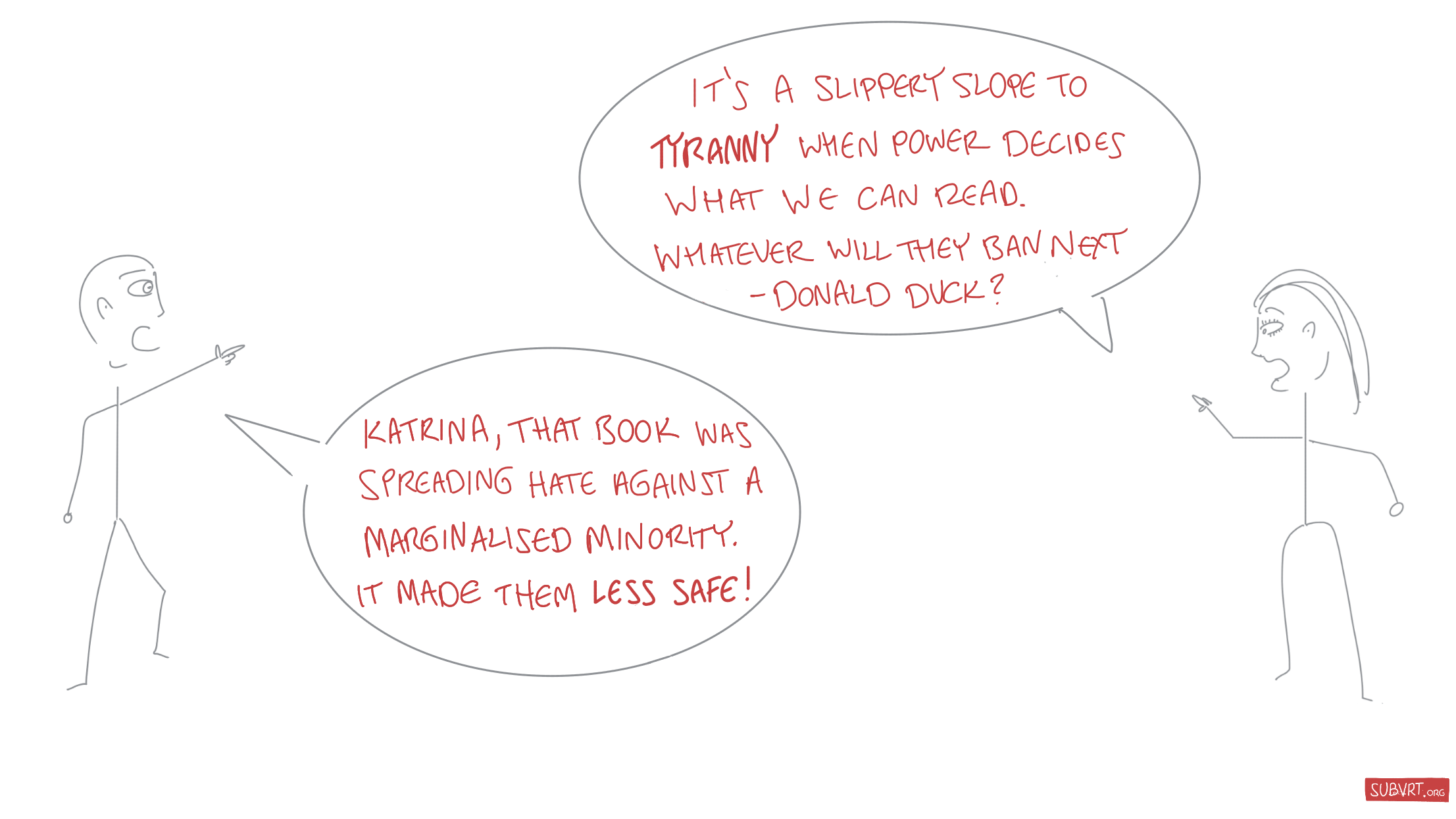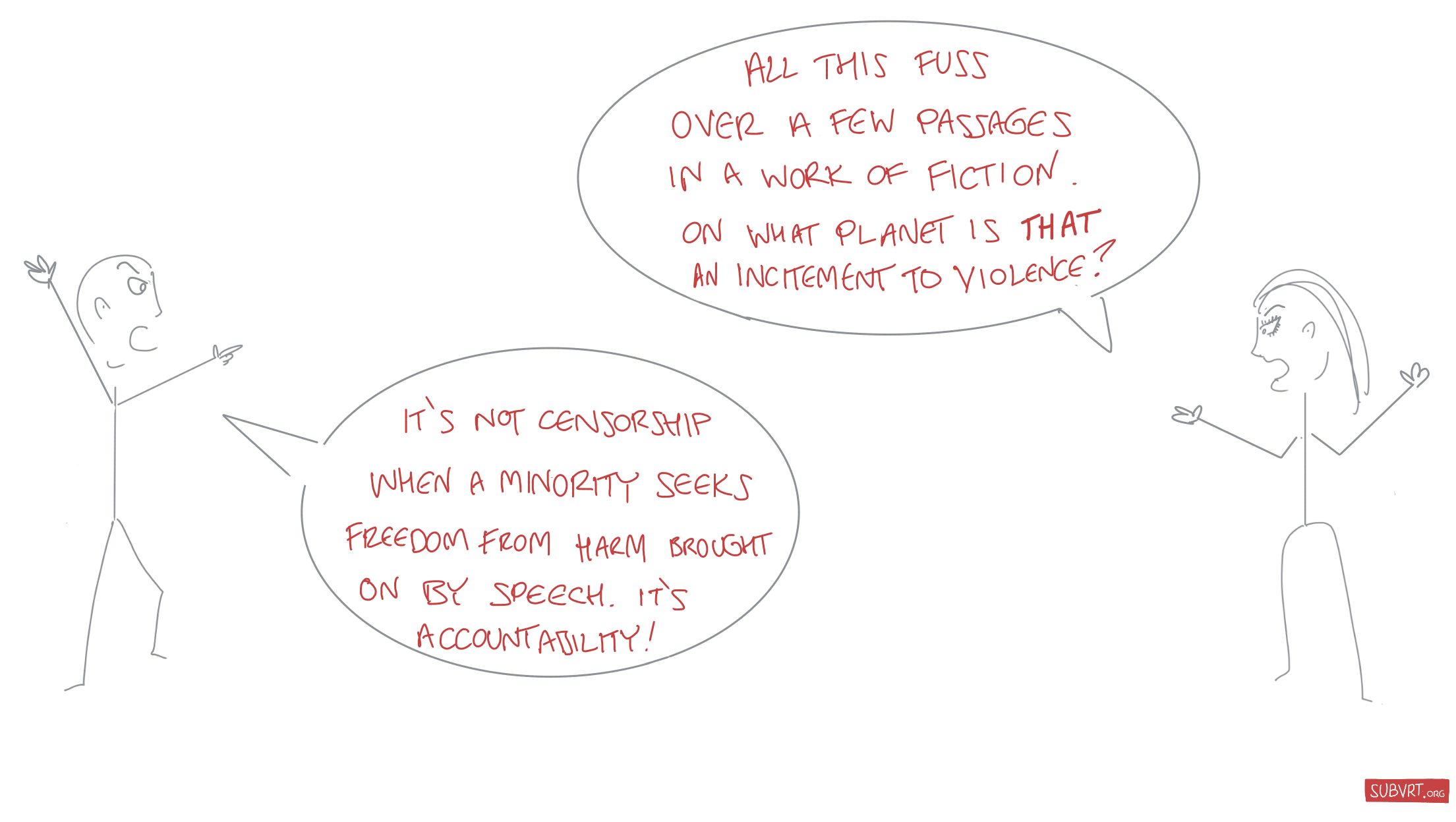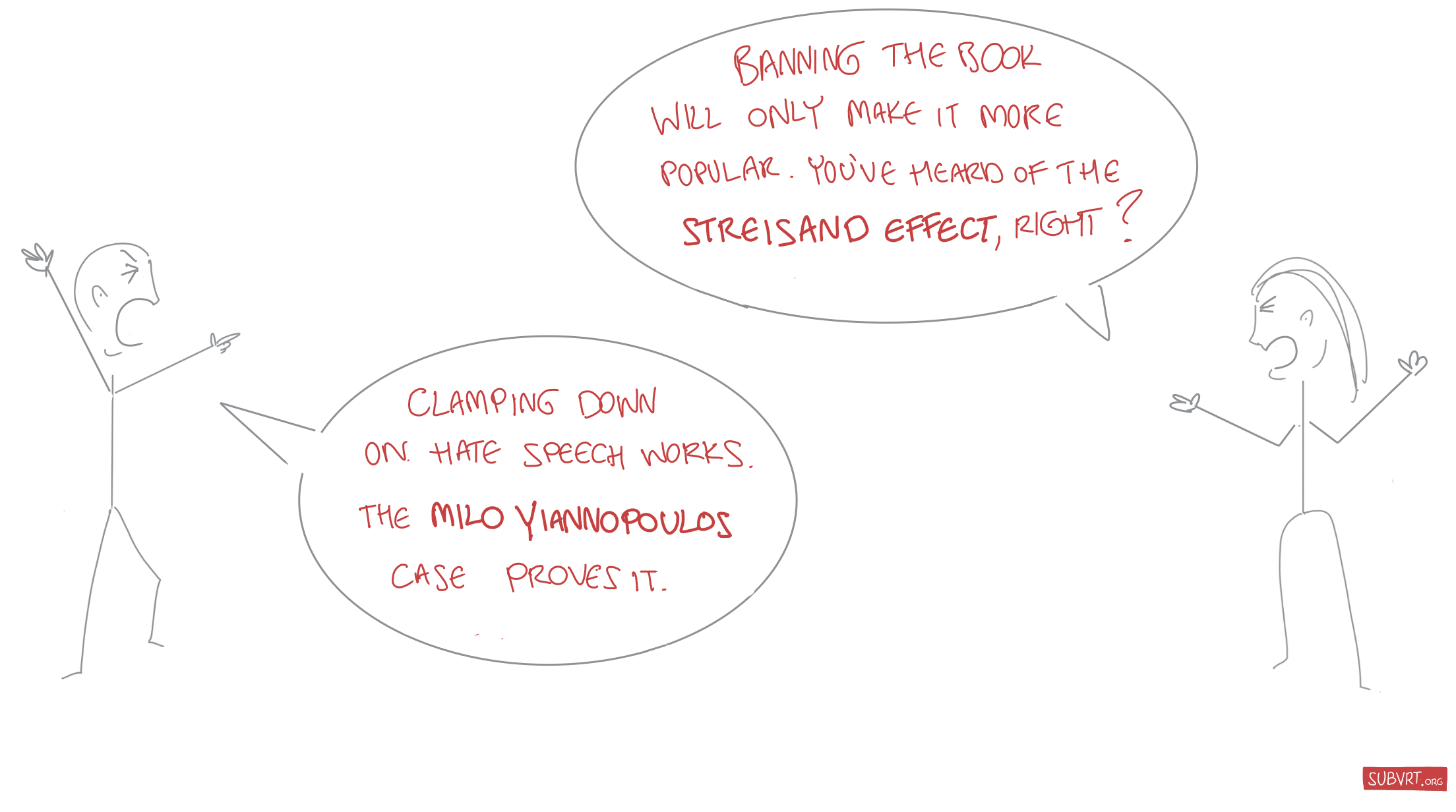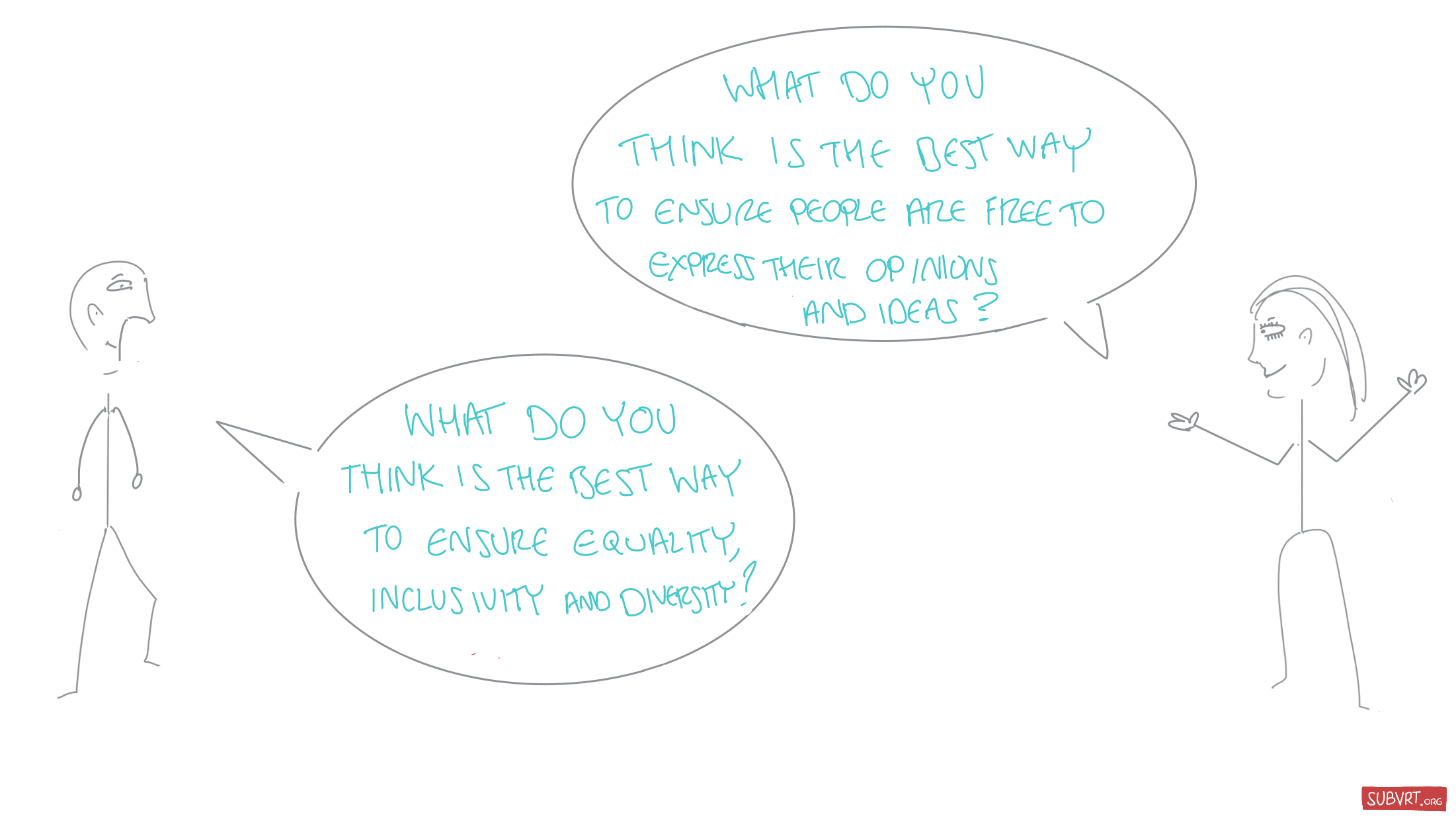Conflicts abound
The EU and tech platforms ban Russian media outlets for spreading ‘disinformation’ on the war in Ukraine. Myanmar's military calls on Facebook for violence against the Rohingya people, which leads to mass killing. Governments lift COVID mask mandates, and vulnerable people say they're at greater risk of infection. Governments re-instate them; another group complains their rights are being trampled.
These disagreements are raging within activist teams. Around kitchen tables. And on social media platforms. All day.
In this era of polarisation, how can you turn these usually unproductive sessions into a chance to learn?
Meet Jon and Katrina
To find out, I'll bring in two well-intentioned, badly-drawn people in the middle of an argument.
The Establishment has banned a book that it says contained hate speech against a marginalised group. Katrina thinks censorship is bad, and wants them to reverse the decision.
Jon thinks spreading hate is bad, and wants them to uphold it.
At this point, there are a few types of discussion they could have.
Jousting over objectives

Both Katrina and Jon come to this issue with different beliefs and objectives, born from their unique experiences and biases.
Jon’s objective here is to stamp out hate when he sees it. Katrina's is to strive for the same whenever she identifies censorship.
So they're at an impasse. There's no way Jon and Katrina could reach an understanding in a discussion like this, nor learn from each other. Because each side has a different priority.
They should better scrap it and go home.
Tussling over definitions

Here, Jon and Katrina can't even settle on what 'censorship' and 'hate speech' mean.
So a discussion of this type will become circular. Another fail. The best that can happen is they'll agree to disagree.
Sparring over results

Evaluating the success of the Establishment's tactic of banning the book might seem like a more substantive discussion for Jon and Katrina to have.
But wait – these aren't two disinterested parties. Their objectives are very different. You can't expect either to evaluate the tactic neutrally, when the disagreement itself is over it.
Confirmation bias will see to it that their chances of approaching one another's position are slim.
Deliberating over tactics
A better way is to make the discussion about tactics to achieve your opponent's actual objective. And to move it from the case of the banned book to the general.
This means:
Determine the real objectives at play
Step outside the disagreement and share your broader objective. And ask your opponent to do the same.
"I'm against hate speech" or "no to censorship" won't do as answer. An objective is something you’re for, not against.1
When Jon and Katrina do this, it reveals that Jon is more complex than just hating on hate speech. His wider belief is that people should live in equality, inclusivity, and diversity.
Katrina, it turns out, isn’t all about censorship, either. She thinks people should be free to express their opinions and ideas.
And in fact, as Jon and Katrina discover when they share their broader objectives, there's a lot of overlap between the two of them. Katrina is in favour of equality, and Jon's for freedom of expression. It's just that their priorities are different.
Debate the tactics to achieve those objectives
Now you know what your opponent wants, and vice versa, help each other to get it.
Share with them your ideas for how they could reach their objective. Make it a debate on tactics.
And in a separate discussion, ask your opponent to do the same for your objective. Thus:

Or, to bring in some examples from our current discourse:
If you think Russian outlets shouldn't be censored, what would you propose to limit Putin's propaganda in Europe?
If you think Facebook was correct in allowing posts that call for violence, how would you ensure it could never again lead to something like the Rohingya massacre?
If you think mask mandates are a breach of your rights, what would you suggest to protect the vulnerable from COVID?
If you think wokeness is bad, what do you think a non-woke social justice campaign would look like?
This is agenda mapping, applied to debates. It can build trust, expand minds. And work wonders.
It might still fail
There are lots of caveats, of course. Most of these discussions are happening in real-time, often online, and typically with high emotion. The resulting misunderstandings can derail everything.
If you’re dealing with someone who feels violated when you disagree with them, you won't have an easy time, either.
And I'm assuming goodwill on both sides – not name calling, or ad hominem arguments. (Jon and Katrina are already at the 'counterargument' level of Paul Graham's disagreement hierarchy. Everything below that on the scale is just noise.)
But done right, deliberating over tactics could spark a productive conversation. Or at least, a revealing one. It creates a space where it's possible to appraise and enrich each other's views.
And if there’s any chance of reaching an understanding, of turning a clash into a learning opportunity in these turbulent times, that's where it'll be.
Notes
1: As per the impact method, your objective would ideally have a target and be measureable. But hey, baby steps.


